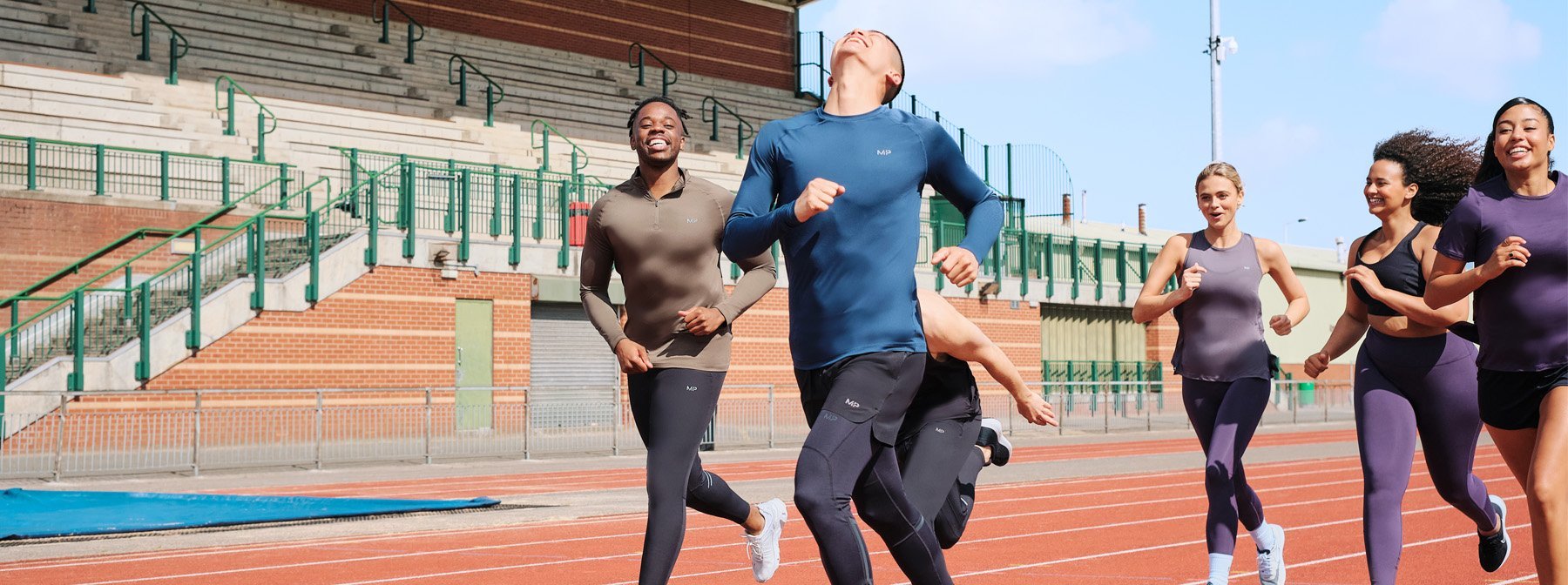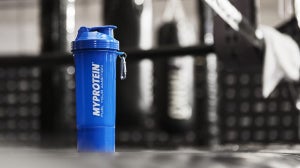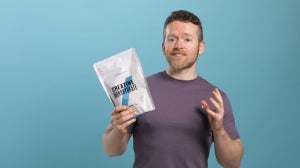
1. Incorporate resistance training
Resistance training should be a staple in anyone’s training program. Split or full body programs are available so there is always a training program for you.Resistance training is a great way to build muscle to improve strength but can also lead to a faster metabolism, as seen in anobesity research journal in 2014 showing that resistance training leads to high caloric burn and increased loss of body fat.(1)
A2010 studyalso showed that resistance training can help reduce anxiety and improve mental health.(2)
2. Stay Hydrated
Hydration is important for performance and recovery but has also been linked to injury prevention. Water also helps flush toxins, transport nutrients, and regulate temperature.A study in theJournal of Human Kinetics looking at 271 college athletes showed those who prioritized hydration maintained performance.(3)
The daily guide is 6 to 8 glasses, but if you’re working out you may need more, especially when doing high-intensity workouts.
3. Prioritize mobility
Stretching and mobility work is the classic part of training that’s undervalued. It can be just as important as the training session, prepping the body for the session to come, and allowing your body to slow down and reset post-workout.A study published inCurrent Sports Medicine showed that dynamic movement pre-workout, and static stretches post-workout, can help with increased performance and better recovery. So dedicating time to focus on mobility has its rewards.(4)
4. Make sure you recover
Recovery is an important part of any serious training program; optimizing recovery is an effective way to improve results and get the most out of your training sessions.A paper fromUniversity of Wisconsin-Madison saw that sleep plays a critical role in the training, recovery, performance, and overall wellness of professional athletes.(5)
By prioritizing recovery, you can work hard in your sessions, allow your muscles to rebuild and recover effectively, and also improve your overall wellness.
5. Supplement where needed
There are a whole range of supplements on the market that claim to give you real results, but some are undertested.When it comes to supplementing based on research, the two you want to focus on are protein and creatine.A scoop of whey protein and 3-5g of creatine pre or post-workout were shown by researchers fromVictoria University (Australia), over a 10-week period, to increase muscle mass and strength across bench press squat and deadlift while also resulting in a decrease in body fat in study participants.(6)
6. Try interval training
From HIIT to Tabata style training, intervals are shown to promote better cardiovascular and fat-losing benefits than other workout formats.ASports Medicine study showed performing 4-min (4 on and 4 off) HIIT intervals, three times per week over 12 weeks, is a powerful form of exercise to enhance vascular function and drive fat-burning results.
Layering intervals into your training can be a great way to take the intensity up and also get better results faster.
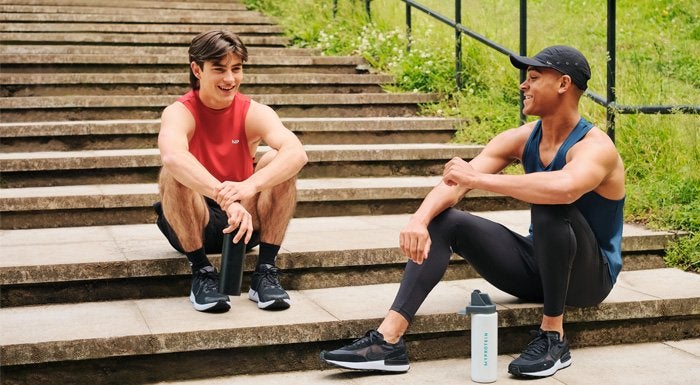
7. Mind and body connection
It can be easy to go through the motions when training without focusing on the movements we’re performing and the muscles we should be using. It’s important to really connect with the muscles you are using when performing your exercises.Research done byThe Lerner Research Institute showed that, even without resistance, mental training can enhance the cortical output signal leading the muscles to a higher activation level and increased strength.(8)
So next time you hit a workout, slow down and really focus on every movement of your body through both the concentric and eccentric movement.8. Fuel your body
Our ability to move in everyday life or optimally when working out comes down to ensuring we’re fueling our bodies effectively and efficiently. Ensuring you hit all the important food groups can be the difference between reaching or missing your goals. Diet is key to successful training.Everyone’s nutrition needs are different in terms of quantity but everyone should be havingproteins, carbs and fatsin their daily diet to ensure body and mind are fueled.
A study fromDuke University, Durham, North Carolina shows the importance of fueling for performance in athletes. When combined with nutrition, timing output was far greater and those who missed one of the key macro groups needed to supplement for optimal performance.(9)
9. Switch things up
Standard progressive programming shouldn’t change much over 12 weeks, with manipulations happening every 4-6 weeks. However, this can be boring for some people.Switching things up can help curb boredom, but a recent study fromEast Tennessee State University showed performing multiple variations of an exercise changes the muscles used by the body. (10)
These recruitments lead to a change in the weight lifted, and more gains than if the same movement is repeated month after month.Switching up movement and training styles can keep the body guessing. It’s a cliché for a reason.10. Pre-fueling
Carb-loading before endurance races such as marathons or ironmen is of course important. But it can also be beneficial to fuel your body pre-workout, especially if you’re hitting something with high intensity.A sports medicineresearch paper showed that carbs are used as the primary fuel source when it comes to higher intensity workouts. This can help output levels, which in turn promotes better calorific burn and increases muscle preservation and growth more so than in those who work out fasted.(11)
Why not make sure you’ve some higher carb food 90-60 mins before your next workout?11. Post-fueling
Fueling your body post-workout is just as important as fueling it before; losing fluids and depleting energy stores throughout your workout will leave your body needing a pick-me-up post-session. Drinking water is a great way to rehydrate and replace any lost fluids, and a higher carb refill will help with muscle recovery and replenish lowered or used glycogen stores in your muscles, not to mention promote repair and growth.Arecent studyshowed that whey and dairy protein may stimulate an increase in muscle protein synthesis and enhance recovery, while another study fromCopenhagen Muscle Research Centre shows that replenishing glycogen stores in the muscles may also help prevent muscle protein breakdown. (12) (13)

12. Don’t forget your headphones
Music can be a great way to stay motivated, get yourself pumped for a workout, or even help you relax after. Plus it can help boost your mood and well-being. Research has suggested the benefits are actually even greater.A study in theIndian Journal of Physiology and Pharmacology suggested those who used slow tempo music post-workout recovered faster than those who didn’t. (14)
While an additional study in the Psychological Bulletin showed listening to music across a range of physical activities could enhance physical performance.(15)
So next time you need a boost to hit a session hard or a cool down to promote recovery, make sure you’ve got your playlist at the ready and your headphones aren’t left at home.13. Boost your session with pre-workout
Need a boost before your session? There are a lot of pre-workouts to choose from, but remember that the key ingredient is caffeine. Taking 200-400mg of caffeine 90-60 mins before your workout can increase fat burning, endurance, and help you go harder.A study byUniversity of Guelph, Ontario, Canada showed caffeine can lead to a greater power output and ability to train longer.(16)
There are a few options to choose fromif you’re after a pre-workout boost.
14. Massage it out
We don’t really need another excuse for a massage, but we’ve got one for you. Exercise causes inflammation in the muscles, and to aid recovery, it is essential to flush out this inflammation. Muscle repair happens post-workout during the recovery process, so anything that can aid in this will help drive your results during the next sessions.Arecent study by Ohio State University and the University of Pittsburghfound massage “increases the percentage of regenerating muscle fibres", especially when done immediately after exercise. Plus it aids in relaxation post-workout.(17)
15. Cardio before or after weights
When time’s limited it can be better to train smarter, not harder.A study by theUniversity of Tokyo showed resistance training before cardio significantly boosted fat burning during the later session. (18)
If fat loss is your goal, then do your cardio either after weights or on a different day.However, if you’re looking to build on endurance, performance may be hindered when cardiovascular training is preceded by resistance training. Scheduling training will optimize your goals.
16. Find workout partners
A bit of encouragement or support from friends and family goes a long way. And that doesn’t stop when training. A group of training partners can help keep you accountable as well as encourage you to hit new PBs and make you feel more confident.Astudy by the British Journal of Health Psychology suggested exercising with a companion seemed beneficial for the promotion of emotional and instrumental support. (19)
17. Have a cup of tea
There’s nothing like a good cup of tea.Hydration is key to recovery and optimal performance. Recent studies have shown tea can play a role in this as well as reducing cortisol (stress) levels within the body. (20)
Certain teas, such as turmeric and green tea, can play a larger role in promoting recovery and weight loss. So, grab a cup.
18. Chocolate Milk is good for you
That’s not a typo. Chocolate milk helps recovery. I repeat, chocolate milk helps recovery.A study in theInternational Journal of Sports Nutrition and Exercise Metabolism found chocolate milk is an effective recovery aid when taken between two high-intensity exercises.(21)
This is due to its 4:1 ratio of carbs to protein, meaning you can simultaneously induce muscle repair, as well as replete energy stores.
19. Lifting accessories can help
When pushing your body to its limits for optimal muscle growth, relying on lifting accessories is not advised. But they can aid you in being able to train heavier and, in turn, improve quicker.A study byFederal University of Pelotasshowed lifting straps can directly influence the exercise performance which requires manual grip strength, aiding you to increase the amount of work performed by the muscles. (22)
20. Timings of your workouts
It can be important to time your workouts for optimum results.A study by the National Centre of Medicine and Science in Sports suggested cardiovascular training could be better in the morning or mid-afternoon when it comes to performance, however resistance training could be more beneficial when done in the evening. (23)
Anadditional study showed a hormonal peak in the late afternoon leading to an increase of performance in the evening.(24)
So, planning your workouts around timings in the day could lead to better performance when planned efficiently.Take Home Message
No matter your goal, the time you have, or how you like to train, there’s a tip that can work for you. From intervals to cups of tea, there are many ways that are scientifically backed to help you optimize your training and get better and faster results. Make sure you train smarter and get the most out of every session, rep, and the time you invest in reaching your goals.READ THESE NEXT:
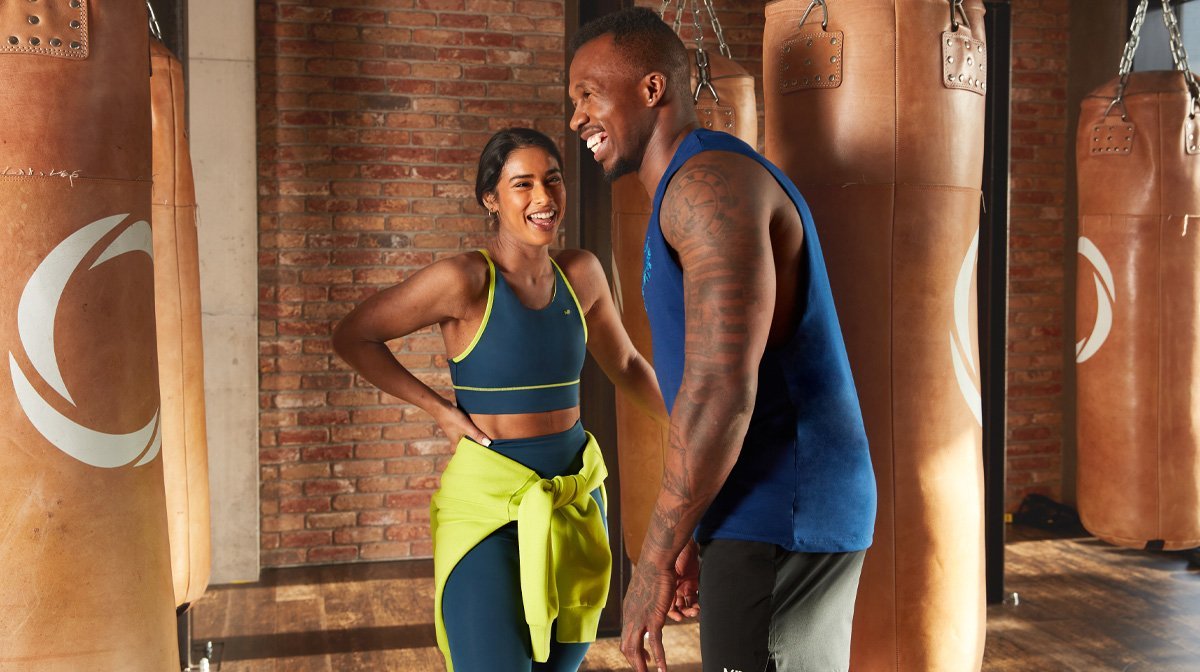
How to Choose the Right Personal Trainer (PT) for You
Find the right help to reach your goals.

14 Resistance Band Workouts for Beginners
You won't be able to resist these exercises ...
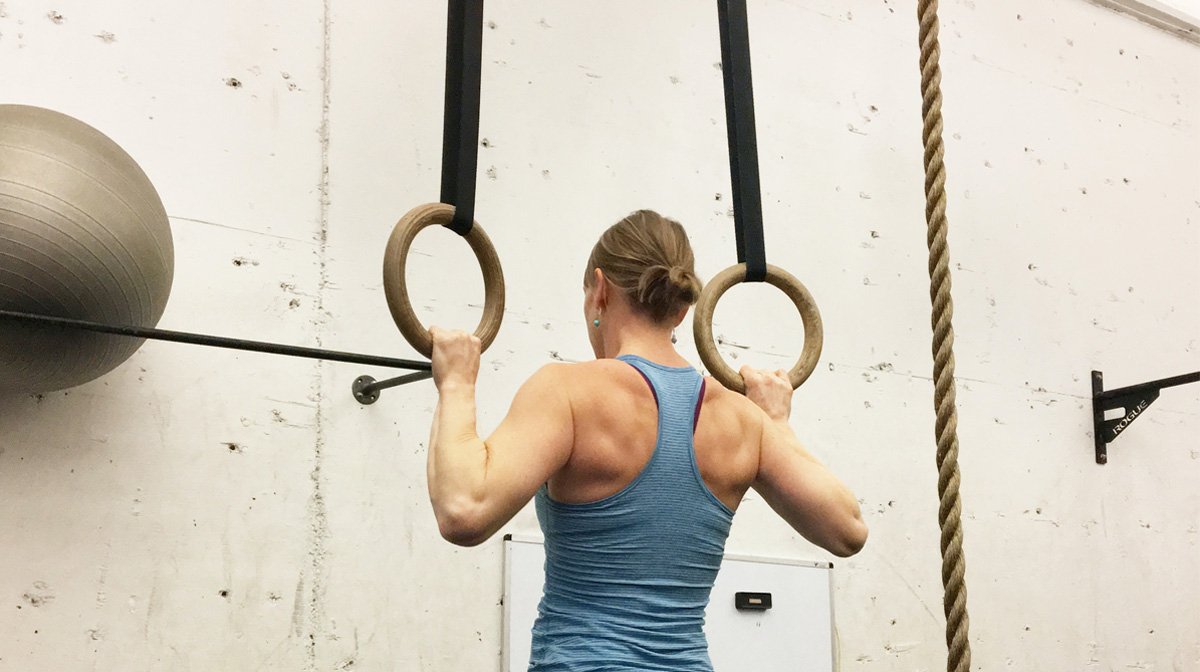
Beginner’s Calisthenics Workout | Personal Trainer Plan
It's trending for a reason ....
References:
1 – https://onlinelibrary.wiley.com/doi/full/10.1002/oby.20949
2 – https://journals.sagepub.com/doi/abs/10.1177/1559827610368771?journalCode=ajla
3 – https://www.ncbi.nlm.nih.gov/pmc/articles/PMC8336541/
5- https://link.springer.com/article/10.1007/s40675-022-00243-4#article-info
6- https://vuir.vu.edu.au/1441/
7 – https://link.springer.com/article/10.1007/s40279-015-0321-z#citeas
8- https://pubmed.ncbi.nlm.nih.gov/14998709/
9- https://www.ncbi.nlm.nih.gov/pmc/articles/PMC5753973/
10- http://www.ncbi.nlm.nih.gov/pubmed/26544089
11- https://pubmed.ncbi.nlm.nih.gov/23846824/
12-https://nutritionandmetabolism.biomedcentral.com/articles/10.1186/1743-7075-7-51
13-https://www.ncbi.nlm.nih.gov/pmc/articles/PMC2269057/
14 – http://www.ncbi.nlm.nih.gov/pubmed/21046917
15 – https://pubmed.ncbi.nlm.nih.gov/31804098/
18 – https://pubmed.ncbi.nlm.nih.gov/17277595/
19- https://bpspsychub.onlinelibrary.wiley.com/doi/10.1111/bjhp.12139
20 – https://www.sciforschenonline.org/journals/nutrition-food/article-data/NFTOA174/NFTOA174.pdf
21- https://pubmed.ncbi.nlm.nih.gov/16676705/

